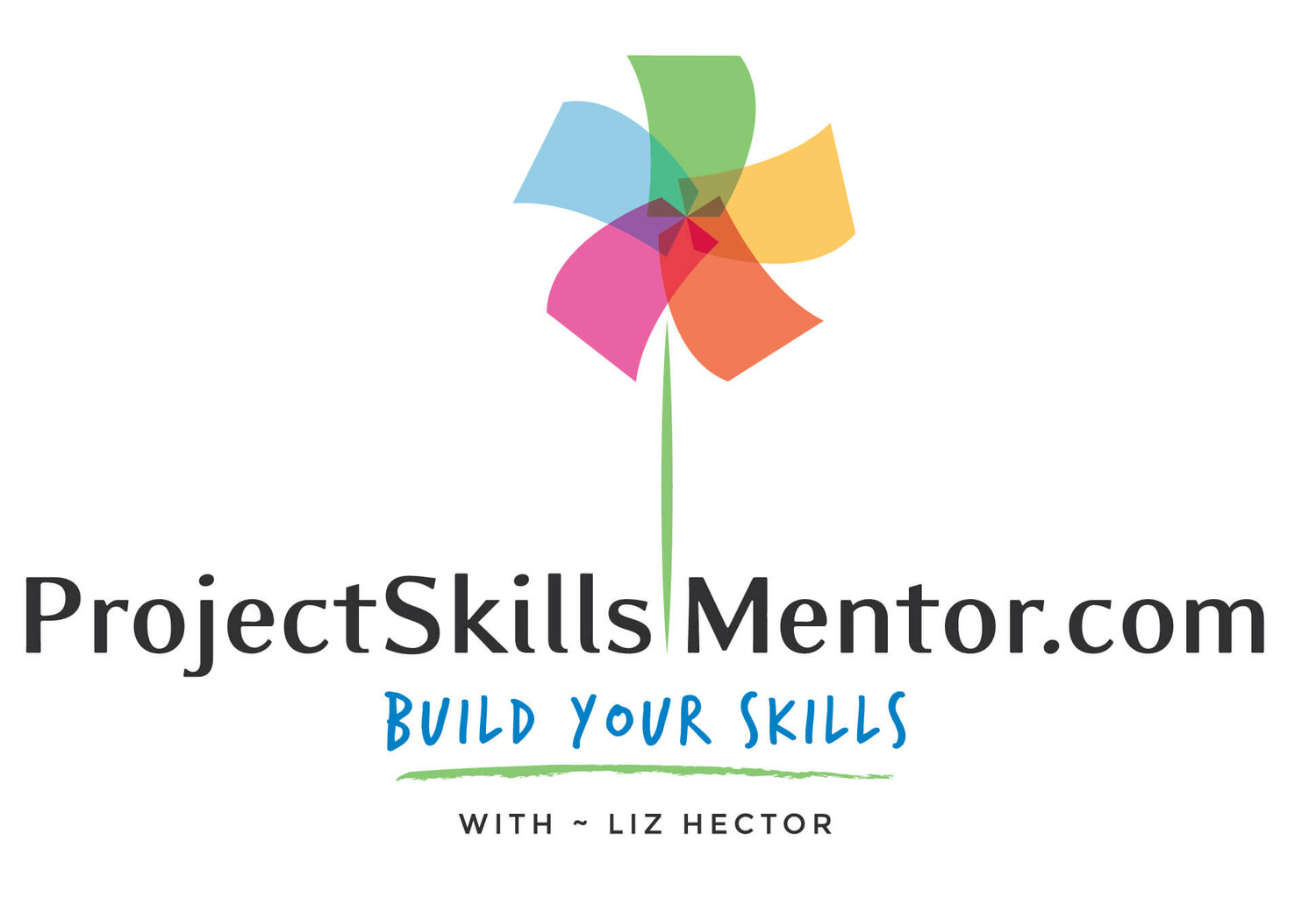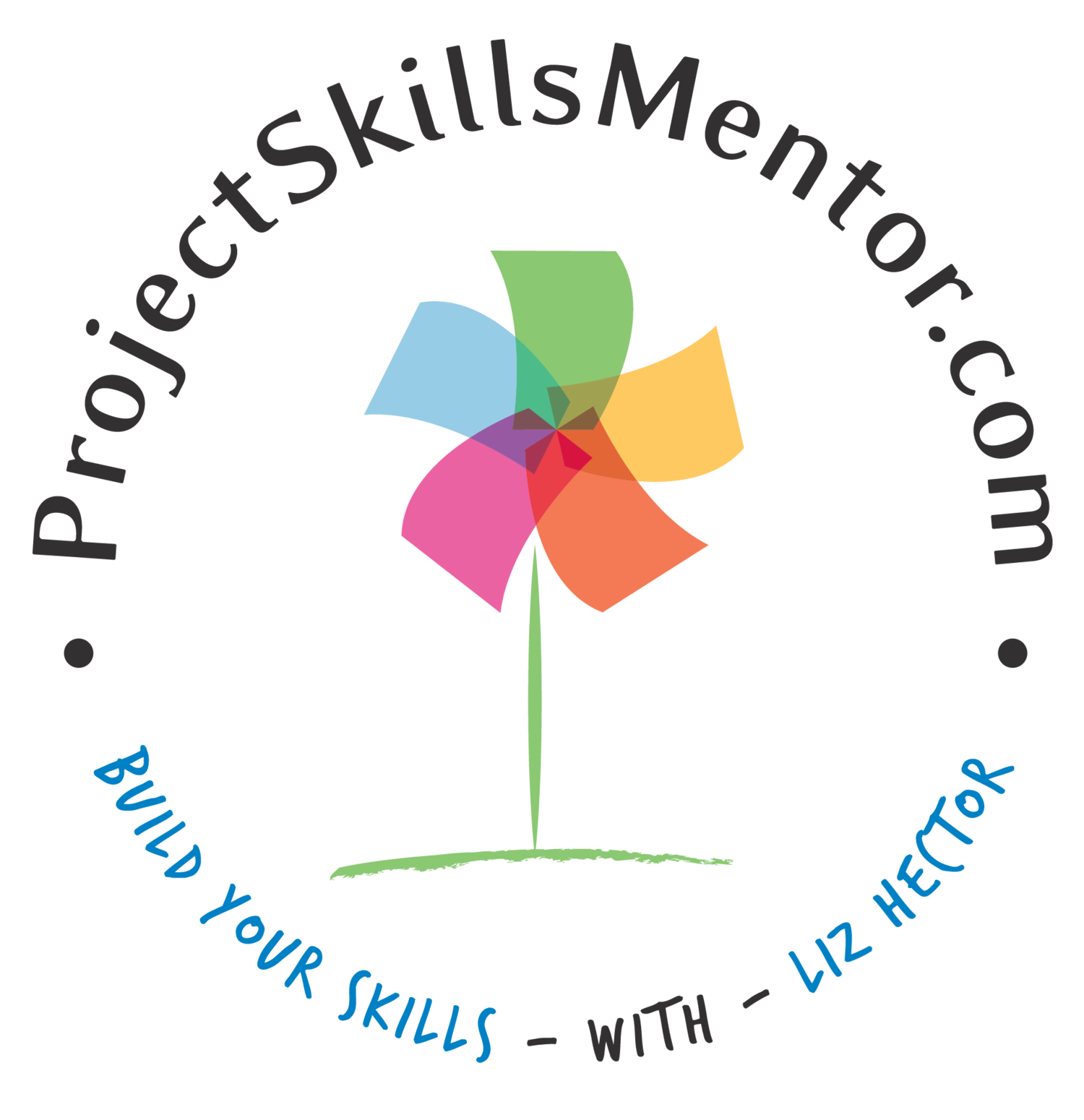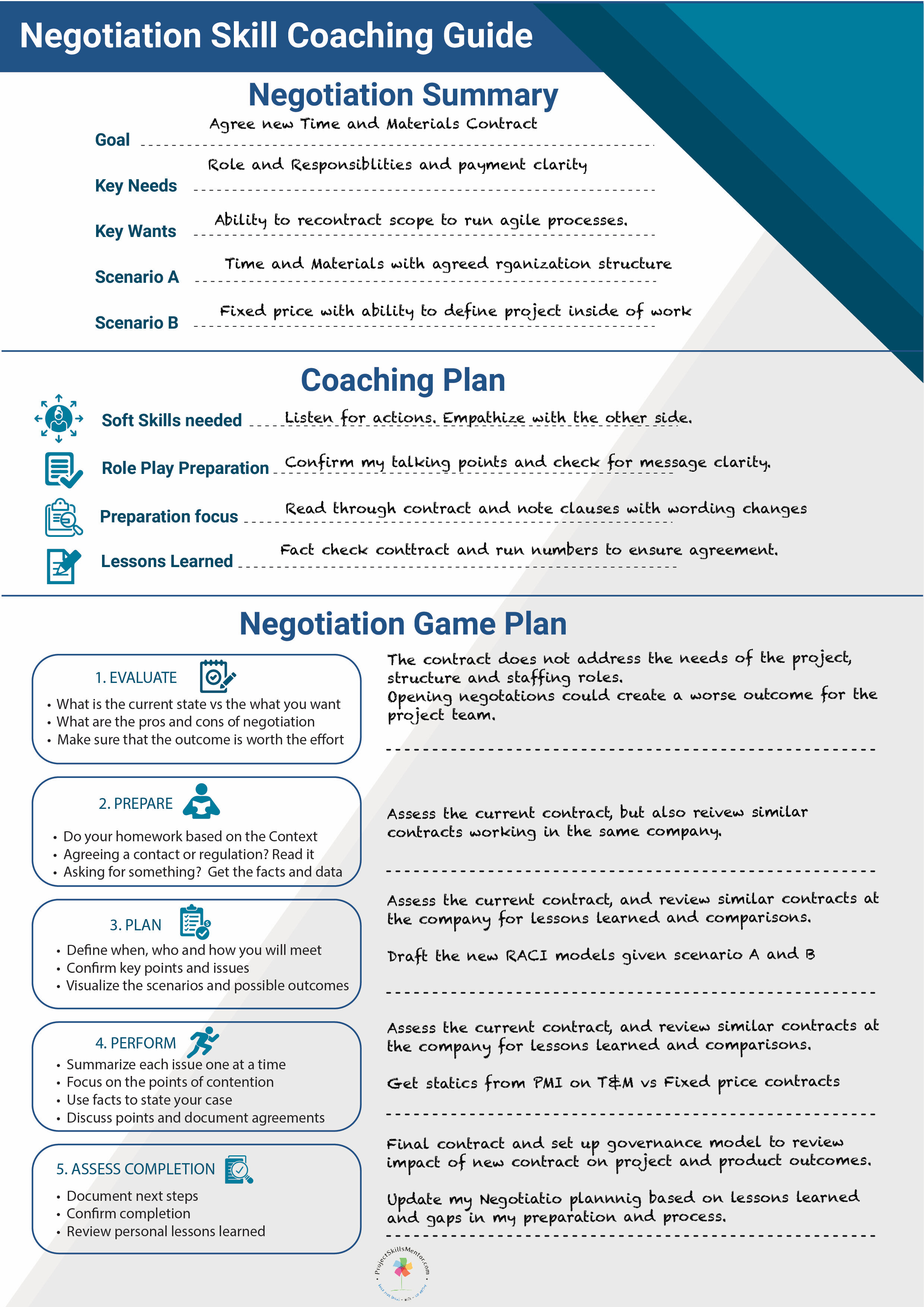Negotiation Skills: How to help others learn to get what they want
How to coach someone who wants to improve their negotiation skills? Recently a mentee asked for my help in this area. I have honed my own negotiating skills from years as an IBM Executive and my work today negotiating contracts on behalf of charities. But could I coach someone else on this topic?
I started by reflecting on my negotiating process. Then I did some research. I looked for resources that document the process and found limited free negotiation content online, so I have created content here for you to use and download. Where I found good content, I have linked them below.
Coaching Negotiation Skills
What Negotiation is
How to do it
How to Coach others
A Plan on a Page
Ask the person being coached (the mentee) to review the instructions below and create their own roadmap. The link to download this form is in the button above. Starting with the basics and goal in the Negotiation Summary.
Work out the Coaching Plan during your meetings. And work through the areas the mentee wants to address.
Following that, ask the mentee to update their Game Plan to build the skills needed to prepare, assess, role-play and perform the negotiation process.
Close the Coaching Plan with a lessons learned review.
What is Negotiation?
According to Cambridge Dictionary, it is:
"to have formal discussions in order to reach an agreement."
For the sake of my work and coaching, here is my definition:
Negotiation is the art of finding an agreement that is fair, sustainable, and meets 90% of the needs of both parties. When done right, Negotiation should build trust, respect, and relationships in the long term. This means threats, anger, and zero-sum are not part of my negation strategies.
Confirm your shared Understanding and Context
Many people think Negotiation is winning at the cost of someone else. Known as the zero-sum game or getting everything you want. So best to start coaching by making sure you have a shared understanding. To do this, ask three questions:
What is your negotiating goal?
What is your definition of negation?
Can you run through an example or situation?
With this information, as the coach, you will understand:
if they need to get a better deal from a vendor, or
ask their boss for a raise, or
agree to their next vacation with their spouse, or
something else
Either way, as the coach, you now understand the setting for the goal. You can also discuss what your Mentee wants from the coaching exercise: a bit of advice or to learn the entire process.
Below I focus on coaching the art and skill of negotiating from someone who has some experience but wants to work on their process and approach.
Assess Soft Skills
Why are Soft Skills important to Negotiation? I call soft skills your personal 'superpower' because leveraging these strengths helps in your overall success. See this video for more on this topic.
Let's take an example. Using my Soft Skills List (click here for the Guide to Soft Skills). What 'score' does your Mentee give themself on the skill of Listening. If you can actively listen to the person you are negotiating with, you will hear their implicit and explicit needs, allowing you to understand their goals and find an "in" that meets your wants and needs.
You can review the full list of Soft Skills with your Mentee. After discussing which skills you both consider critical for negotiating, have your Mentee start by assessing areas to leverage, and areas to work on.
“Let us never negotiate out of fear. But let us never fear to negotiate.”
Create a Negotiation Game Plan
As a project manager, I am used to creating processes to visualize the action steps. This helps me to share the concept with others. Once the 'straw man' is shared, the Mentee can create a modified version that fits their situation.
The Game Plan model consists of 5 Phases. Each phase has several actions summarized in the graphic above.
Evaluate
Do you need to negotiate?
What is the current state vs. what you want?
What are the pros and cons of Negotiation (time, effort, and outcome expected)?
What is your ‘ask’ ?(as the saying goes ‘you don’t get, if you don’t ask’)
2. Prepare
Are you discussing a contract? - Read it word for word (and make notes.)
Is a law or regulation at issue? - review it and research (google for references and other input)
Are you asking for something? - check for supporting data (like salary survey information when asking for a raise.
Be clear about what you want, need, and are willing to 'give up. Write all of this down, check your options with any other parties before starting the negotiations start.
Visualize the discussion and the outcome.
Make Plan A, B, and C scenarios for what options and counters may be discussed.
3. Plan
Define when who and how you will meet.
Agree on the Agenda in advance
Be clear about how updates and agreements will be documented (check notes for agreed content and wording).
4. Perform
Start with introductions, identify the negotiator for each party.
Review the Agenda, clarify any process points.
Discuss each point. If related to a document, reference it.
Summarize the issue before getting detailed. (the issue may only need clarification or maybe easily agreed to).
If a point of contention is found, state your case using data and reasoning after summarizing the point. Close concisely stating what you want.
Keep the discussion professional and focused on solutions.
Always listen first - repeat or summarize what was said to show you are listening.
If in doubt, check for understanding.
If you agree, be clear about the statement you agree to and final document agreements.
If agreeing is difficult, try a few tactics.
Focus on if/then statements (such as "if I cannot get this quality, then I will need a larger discount").
Ask the other party for options (for example: 'you know I need this quality, what are your suggestions on how we can achieve this").
Reveal your most important needs. See this Forbes article to see the power of openness when negotiating.
Be careful not to make absolute statements that are hard to back away from later. On how to back down in a negotiation, see this HBR article.
If you just cannot agree, sometimes it is better to table the issue and go back and review your options. Don't agree just to get through the process - you may have a long time to regret it.
Know the real deadlines. If there is a deadline you need to consider, don’t accept ‘imposed deadlines’ such as “decide today, since this price will not be offered tomorrow'‘ tactics. When the other side puts pressure on you to ‘close the deal’ - use it as a bargaining chip. But walk away rather than making a bad deal.
5. Follow up to completion
Document agreements, open points, and next steps.
Tracked agreed-on terms, if needed.
On completion of the process, assess yourself and the process to be even better next time.
“Remember that accepting a bad deal or even compromising is always a mistake. ”
Make the Game Plan real
Coach your Mentee on the model above, ask them to:
adjust the model to fit their needs, and then
complete a draft version.
In the next session, you can review their version and discuss the options and documented issues.
You can use the free downloadable guide to do this (see the button at the top of this blog).
Coaching using Roleplaying
When your Mentee has a completed Gamp Plan, walk through it using Roleplaying. Have the conversation start to finish. Make it as real as possible.
Saying the words planned mentally out loud will help your Mentee check for tone, content, and approach. A good roleplay coaching moment will give you a sense of the emotional content related to this discussion. Anger and emotional reactions are generally not helpful. If this is an issue for your Mentee, you may want to share this HBR article with them on handling emotion during negotiations.
As the coach, giving feedback on the process and the 'performance' of your Mentee will help them see how they come across to the other party.
Coaching Tips for Negotiation
Coaching tips are a good way to create a checklist when going through the above process with your Mentee. After Roleplaying, review this list for points your Mentee covered well and those they may want to work on.
Know what you want and write it down
Coordinate your Game Plan with whomever you negotiate on behalf of
Be prepared, read related documents, and check your facts first
Ask for what you want
Stay respectful and manage your emotions
Use rational explanations and reasoning
Use data and facts to support your points
Ask the other party what they want
Work to see their other parties side
When you can't agree: ask for options
Be firm when it is important
Make sure agreements are clear and documented
Coaching is rewarding. And something even more rewarding? To help others grow their skills so they can get what they want.
I hope you found this information helpful. If you did, please share this information with others. And please let me know in the comments below what your top Negotiation tip is to share with the rest of us.







